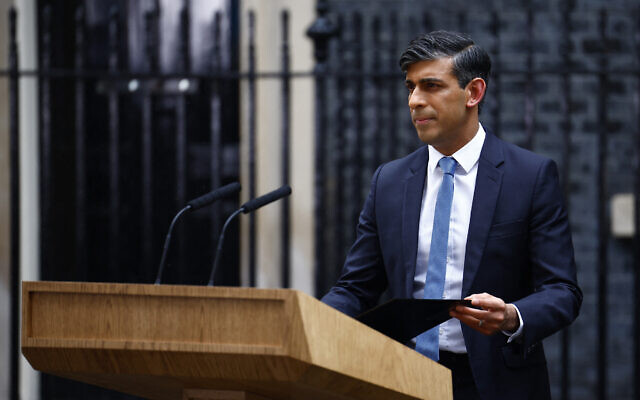
Published 05/23/2024 09:24 | Edited 05/23/2024 09:30
The Prime Minister of the United Kingdom, Rishi Sunak, dissolved Parliament this Wednesday (22) and called early general elections for just over a month from now, on July 4.
Sunak has been saying for weeks that there is evidence that the British economy is improving.
“I hope that my work since becoming prime minister shows that we have a plan and that we are prepared to make decisions so that the country flourishes, no matter how bold they may be,” he said. “Now is the time for the UK to choose its future.”
In his speech, in front of the official residence of the British government, number 10 Downing Street, in London, Sunak said that the government had “achieved two important milestones” of reducing inflation and growing the economy faster than other countries. of the G7.
The opposition, the press and voting intention surveys, however, point to another reality.
In recent years, the UK has jumped from an average annual inflation of 2% to a total of 22% from 2021 to today. At the same time, real wages have fallen by 2.3% since the beginning of 2021, making it more difficult for the majority of the population to pay their energy bills and weekly shopping.
Although April’s inflation pointed to a sharp drop in prices, from 3.2% in March to 2.3% in the following month, prices of products and services for consumers continue to grow.
In power since May 2010, when Gordon Brown (Labour) gave way to David Cameron, the Conservatives have led the UK into a “cost of living crisis” over the last three years.
Because of the cost of living crisis, voting intention polls indicate that the Conservatives would take a beating in the elections expected in November.
According to a survey aggregator on the Politico website, the difference between the acronyms is almost 20 percentage points, with the Labor Party having 44% of voting intentions in the legislative elections compared to 23% for the conservatives.
Furthermore, Sunak himself is highly unpopular. According to YouGov, 20% of Britons support him, compared to 34% who support Labor leader Keir Starmer.
The opposition claims that bringing forward the general elections to July 4th would avoid an even more crushing defeat for the Conservatives, who must leave the leadership of the United Kingdom after more than 14 years, marked by the Brexit referendum and the succession of five prime ministers. ministers in eight years.
Read also: App delivery companies organize strike in the United Kingdom
Read also: Movement against Brexit and perverse effects on workers grows
Source: vermelho.org.br

